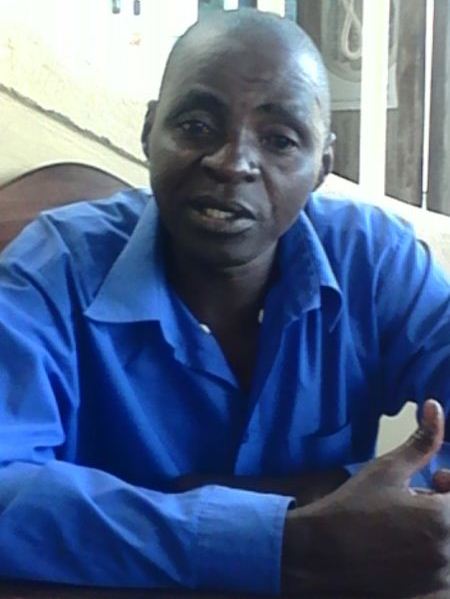
His insipid soulful eyes will forever haunt me. 53-year old Maxwell Bowa is a deeply wounded man seeking answers for the 10 months he spent on the death row.
Phyllis Mbanje
Although the High Court ruled in favour of his appeal and released him from the hell hole called Whawha prison, Bowa’s mind and spirit is still trapped in that place.
The long hours in solitary confinement, the degrading experiences of using an empty soft-drink container as a toilet pan and the lice-infested blankets, have all stripped him of his pride and sense of purpose.
When I first met him, I was struck by his vulnerability, his brokenness. Legally he is a free man, but he has lost a large part of himself in those terrible months that he spent in jail.
The game ranger’s anger is understandable. The unwarranted suffering, the fear that clutched his heart every time his cell door was shaken. Like the rest of his condemned mates, he wondered how his end would be like. Would it be painful, would he suffer long? All these sordid imaginations dominated his tormented soul every day he sat alone in his tiny cell.
“The cell was so small that if I stretched my arms I could touch the walls. I felt suffocated,” he said.
For someone that used to work in the vast open forests with clean air and the warm sun on his back, waiting to be hanged was unbearable.
The actual execution process remains a closely guarded secret among the prisoners, but those with keen imagination told Bowa horrifying tales which he refuses to share.
“I dreaded the act but above all, I imagined the humiliation my children would have to endure when they were asked how I had died. That is not how I expected the end of my life to be.
As he told his story — this dark tale — with hunched shoulders and resignation written all over his face, it was clear Bowa’s journey to true freedom and finding himself again will not be easy.
For the time being, he remains stuck in that place of death. The joy he dreamed would be his once he left prison, still eludes him. He’s unprepared for the world he has not known for 10 hopeless months. He has been cowed and reduced to a bag of nerves, afraid of his own shadow and plagued by the images of the death trap he narrowly escaped.
He’s desperately in need of cleansing of the spirit. His innocent eyes and ears have seen too much and heard too much. He came face to face with hardcore criminals and they forcibly dragged him into their perverse world by sharing their sordid and macabre crimes.
He is angry at the system that allowed him to be punished for doing his job and defending his life.
Bowa is convinced his life was threatened and if he had not pulled the trigger, his victim would have killed him.
“When you are faced with a life and death situation, you act on your reflexes because if you hesitate you become the victim. Survival instinct has the last word,” he said.
Reluctant to repeat the events of the day which led to his incarceration, Bowa struggles to make peace with the unfortunate incident.
He has become a stranger to his wife and children. He puts up a façade to hide his pain and only time will tell just how deeply scarred he is.
In a few weeks people will slowly forget about him and he will be alone to deal with his nightmares. There is no facility in place for him to go for counselling and reintegration into society. His family and close associates can only do so much for him.
His story however uncovered the gross abuse of prisoners and how the government has failed in that regard. Convict or not, the provisions of the constitution include basic human rights for everyone. These include the right to health and acceptable conditions of living which do not strip a person of their dignity.
The United Nations general assembly initiated the Basic Principles for Treatment of Prisoners and under its provisions all prisoners must be treated with the respect so as to preserve their dignity. They are entitled to health services without any discrimination but Bowa’s account reveals that many prisoners are being denied medical attention.
For years now the situation at most prisons in Zimbabwe has remained pathetic and the over 18 000 prisoners continue to face hardships which include shortage of uniforms and other basic needs.
Human rights groups like the Zimbabwe Lawyers for Human Rights (ZLHR) and the Law Society of Zimbabwe have advocated for the improvement of conditions but to no avail.
Many have called for the setting up of a commission of inquiry which would then carry out an assessment of the current conditions and make recommendations based on their findings.










